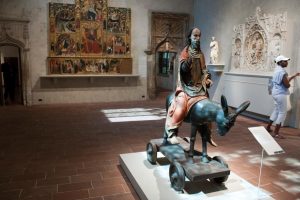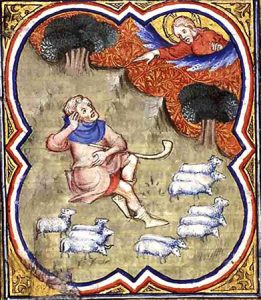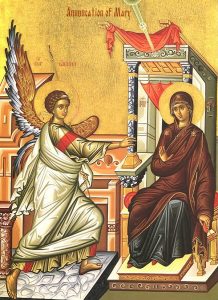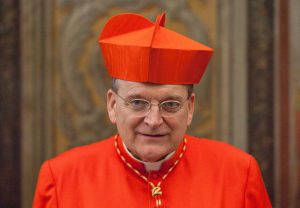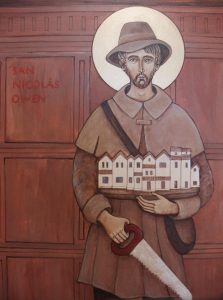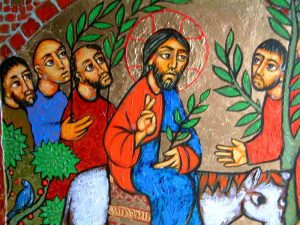 We call the week great, not because it has a greater number of hours – other weeks having many more hours, after all – not because it has more days, there being the same number of days in this and the other weeks, of course. So why do we call this week great? Because in it many ineffable good things come our way: in it protracted war is concluded, death is eliminated, curses are lifted, the devil’s tyranny is relaxed, his pomps are despoiled, the reconciliation of God and man is achieved, heaven is made accessible, human beings are brought to resemble angels, those things which were at odds are united, the wall is laid low, the bar is removed, the God of peace having brought peace to things on high and things on earth. This, then, is the reason we call the week great, because in it the Lord lavished on us such a plethora of gifts. This is the reason many people intensify their fasting as well as their sacred watching and vigils, and practice almsgiving, thus showing by their behavior the regard they have for the week. After all, since the Lord in this week has regaled us with such great goods, how are we not obliged to demonstrate our reverence and regard as far as we can?”
We call the week great, not because it has a greater number of hours – other weeks having many more hours, after all – not because it has more days, there being the same number of days in this and the other weeks, of course. So why do we call this week great? Because in it many ineffable good things come our way: in it protracted war is concluded, death is eliminated, curses are lifted, the devil’s tyranny is relaxed, his pomps are despoiled, the reconciliation of God and man is achieved, heaven is made accessible, human beings are brought to resemble angels, those things which were at odds are united, the wall is laid low, the bar is removed, the God of peace having brought peace to things on high and things on earth. This, then, is the reason we call the week great, because in it the Lord lavished on us such a plethora of gifts. This is the reason many people intensify their fasting as well as their sacred watching and vigils, and practice almsgiving, thus showing by their behavior the regard they have for the week. After all, since the Lord in this week has regaled us with such great goods, how are we not obliged to demonstrate our reverence and regard as far as we can?”
St. John Chrysostome
